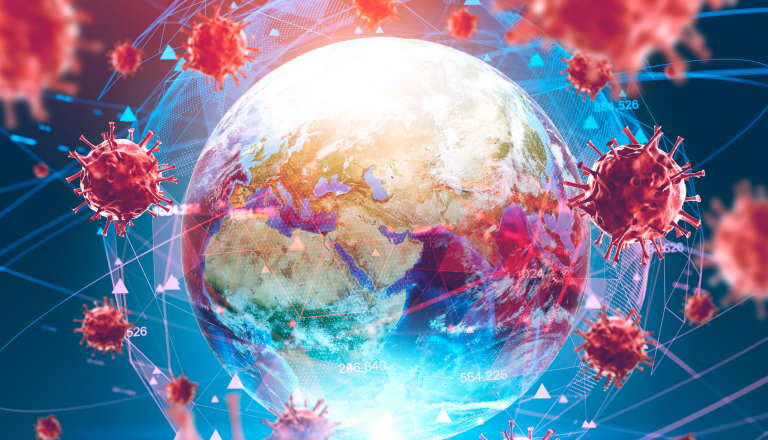
Contribution to Clinical Research on COVID-19
On March 11, 2020, the World Health Organization (WHO) decreed that the world was experiencing a Covid-19 pandemic. A disease that until then we knew very little about.
A year later, in March 2021, our medical team, in partnership with Hospital Santa Paula, published the article “Seroconversion for SARS-CoV-2 in Rheumatic Patients on Synthetic and Biologics Disease Modifying Anti-Rheumatic Drugs in São Paulo, Brazil ”, in the Journal of Molecular and Genetic Medicine.
In this research, 100 individuals with rheumatic diseases followed by the team at the Cobra Reumatologia clinic were prospectively evaluated, for evaluation and measurement of anti-SARS-CoV-2 IgM and IgG antibodies, with the hypothesis that perhaps treatment with DMARDs (Drugs Modifying of the disease, conventional or biological) could change the seroconversion of rheumatic patients even after contact with the virus.
As a result, we noticed that anti-SARS-CoV-2 IgG positivity was quite common (14% incidence), however half evolved asymptomatically and no patient had severe clinical manifestations. Furthermore, the use of bDMARD does not appear to hamper the humoral immune response to SARS-CoV-2, although no definitive conclusion on this matter can be drawn from this study.
On March 11, 2020, the World Health Organization (WHO) decreed that the world was experiencing a Covid-19 pandemic. A disease that until then we knew very little about.
A year later, in March 2021, our medical team, in partnership with Hospital Santa Paula, published the article “Seroconversion for SARS-CoV-2 in Rheumatic Patients on Synthetic and Biologics Disease Modifying Anti-Rheumatic Drugs in São Paulo, Brazil ”, in the Journal of Molecular and Genetic Medicine.
In this research, 100 individuals with rheumatic diseases followed by the team at the Cobra Reumatologia clinic were prospectively evaluated, for evaluation and measurement of anti-SARS-CoV-2 IgM and IgG antibodies, with the hypothesis that perhaps treatment with DMARDs (Drugs Modifying of the disease, conventional or biological) could change the seroconversion of rheumatic patients even after contact with the virus.
As a result, we noticed that anti-SARS-CoV-2 IgG positivity was quite common (14% incidence), however half evolved asymptomatically, and no patient had severe clinical manifestations. Furthermore, the use of bDMARD does not appear to hamper the humoral immune response to SARS-CoV-2, although no definitive conclusion on this matter can be drawn from this study.
Access the full article:
SANTANA, Felipe M. et al. Seroconversion for SARS-CoV-2 in rheumatic patients on synthetic and biologics Disease Modifying Anti-Rheumatic Drugs in São Paulo, Brazil. 2021. Journal of Molecular and Genetic Medicine. https://www.hilarispublisher.com/open-access/seroconversion-for-sarscov2-in-rheumatic-patients-on-synthetic-and-biologics-disease-modifying-antirheumatic-drugs-in-so.pdf